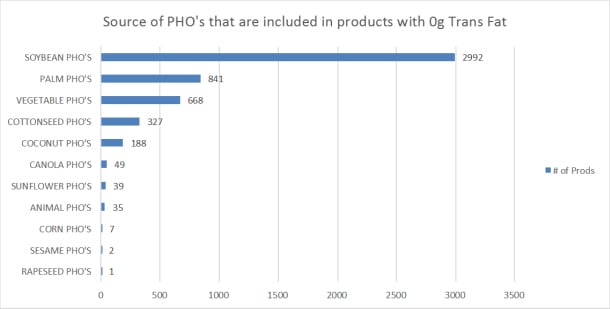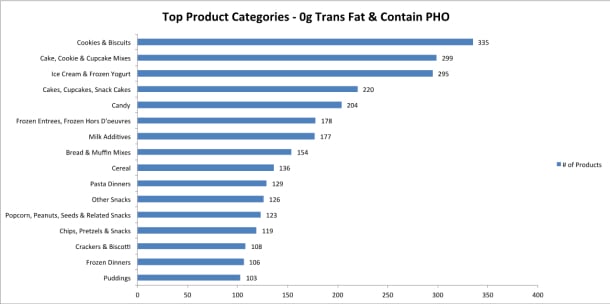While the FDA has come under pressure to change existing rules which allow firms to label products with less than 0.5g trans-fat per serving as 'trans-fat-free', new research suggests that only a small percentage of products with 0g trans-fat on the label still contain PHOs.
According to St Louis-based food label data cruncher Food Essentials - which scanned its database of 130,000 branded and private label products in US stores between September 2012 and March 2014 - just 6.2% (4,610) of 74,249 products making zero trans-fat claims actually contained PHOs.
Only 6.2% (4,610) of 74,249 products making zero trans-fat claims contained PHOs
Looking at the data on a category-by-category basis, the top four contributors of PHOs in products labeled as trans-fat-free were: Cookies and biscuits; cake, cookie and cupcake mixes; ice cream and frozen yogurt; and cake, cupcakes and snack cakes - reinforcing comments by the American Bakers Association (ABA) that eliminating PHOs entirely from some baked goods remains technically challenging.
By far the largest source of PHOs in the sample was partially hydrogenated soybean oil, while key brands using PHOs in products making 0g claims included Betty Crocker, Nabisco, Roundy’s Pillsbury, Kroger and Nestlé.
AHA: Products that include a PHO in the ingredient list should not qualify as trans-fat free
The research was released as the FDA mulls over comments about its proposal to revoke the GRAS status of PHOs, with many stakeholders arguing that products containing any amount of PHOs should not be allowed to make 0g trans fat claims.

For example, in their comments to the docket, the American Heart Association (AHA) and the American College of Cardiology (ACC) remark: “If consumers eat multiple servings of a food product (s) they believe to contain zero grams of trans-fat, the total amount of trans-fat they consume in a day will quickly add up. Products that include a PHO in the ingredient list should not qualify as trans-fat free.”
However, several commentators claim that the FDA overstated the contribution PHOs make to trans-fat intakes in a 2012 analysis by coding all products making 0g trans-fat claims as containing 0.4g trans-fat, when in fact they typically contained just 0.2g or less.

While some food industry associations - notably the ABA - argue that a ban on PHOs is not the best way to tackle trans-fat (click HERE), others appear to accept that it’s a matter of when, rather than if, and focus their comments on proposing a reasonable time frame for a phase out.
The Private Label Manufacturers Association (PLMA), for example, says members will need a minimum of 18 months after a final rule is published to phase out PHOs.
Click HERE to read more about Food Essentials, which has been analyzing large food label data sets since 2004 using proprietary technology. It works with government, industry and consumers.

